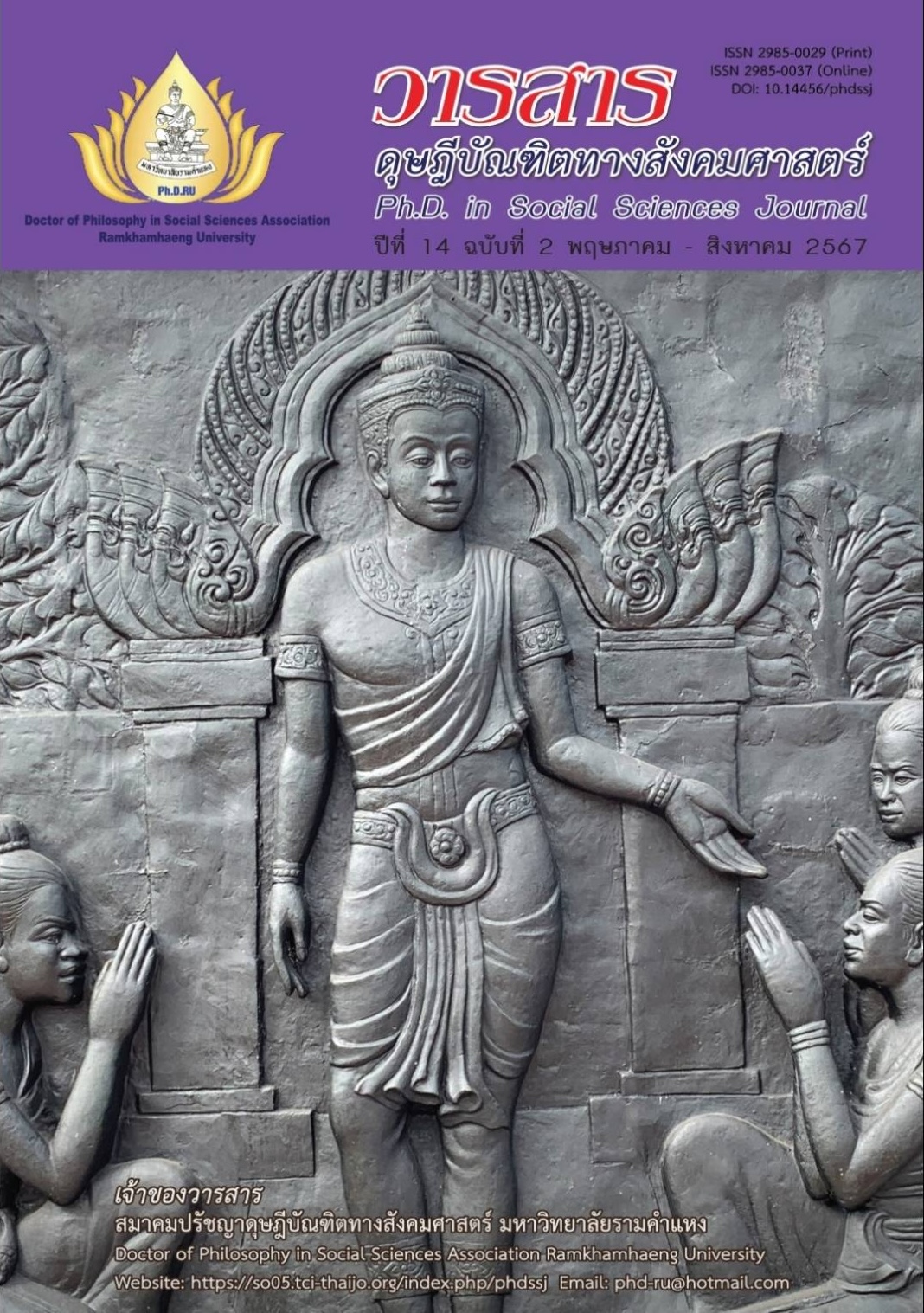Tourism Network Management in Lan Na Civilization Tourism Development Zone for Sustainable Tourism Under the Study Framework of David Easton’s Systems Theory in Political Science
Main Article Content
Abstract
This research article aims to study the tourism network management, the factors affecting the building of networks, and a tourism network management model under the study framework of David Easton’s systems theory in political science. By mixed-methods research, the interview technique was conducted with twenty key informants. The sample population consisted of 400 subjects.
Findings are as follows: (1) Tourism network management consisted of the following mechanisms coordinating cooperation with tourism networks, roles and participation, knowledge creation, knowledge sharing, public relations, and the building of internal and external networks. (2) The factors affecting the building of networks showed public sector connected tourism activities with nearby provinces and neighboring countries along the provincial borders as well as responsible agencies. And (3) The tourism network management model This begins with a necessity to have a tourism network of five provinces which are in the same zone (assimilation) with networking, knowledge. The organization must be systematically established with the planning. Staff are to be in each province. The government’s laws and regulations must be complied with. The authority is for the administration within the network. Public relations must be used with appropriate technology. The budget must be determined with inspection and evaluation. Empowerment must be allocated to all sectors.
Article Details

This work is licensed under a Creative Commons Attribution-NonCommercial-NoDerivatives 4.0 International License.
Academic articles, research articles, and book reviews in the Ph.D. in Social Sciences Journal are author’s opinions, and not the publisher’s, and is not the responsibility of the Ph.D. in Social Sciences Journal Philosophy Association, Ramkhamhaeng University. (In the case that research is done on human, the researcher has to be trained in Ethics for Doing Research on Human Training and has to produce the evidence of the training).
References
Chaipiboon, S. (2008). The management of cultural tourism: A case study of tourism potentials of Nakornchum community in Muang district, Kampheang Phet province. Kamphaeng Phet Rajabhat University. [In Thai]
Chamnanpon, K., Boonkoum, W., & Sungragsa, N. (2016). A development model of tourism market network management in the small and micro community enterprise in Thailand to prepare for ASEAN Economic Community. Ratchaphruek Journal, 14(3), 80-86. [In Thai]
Chareonwongsak, K. (2000). Network management: An important strategy for the success of education reform. Success Media. [In Thai]
Choochat, C. (2003). Tourism industry (4th ed.). Lanna Printing. [In Thai]
Cronbach, L. J. (1990). Essentials of psychological testing (5th ed.). Harper & Row.
Easton, D. (1971). The political system: An inquiry into the state of political science (2nd ed.). Knopf.
Ek-Iem, B. (2019). Local community leadership and participative management for sustainable use of resources and environment in tourist attraction communities in Chiang Mai. Journal of Agricultural Research and Extension, 36(3), 102-113. [In Thai]
Gulick, L., & Urwick, L. (1937). Papers on the science of administration. Institute of Public Administration.
Inrin, J. (2016). A study of tourist activities organization networks at Krung Ching subdistrict, Nopphitam district, Nakhon Si Thammarat province. Master’s Independent Study of Science in Community Development, Thammasat University. [In Thai]
Noamna, S., Thongphun, K., & Yodmongkol, P. (2020). Application virtual world for cultural tourism. Journal of Information Science and Technology, 10(2), 71-76. [In Thai]
Nopparat, N. (2008). Community participation in sustainable tourism development: A case study of Tambon Wiang Tai Municipality, Amphoe Pai, Changwat Mae Hong Son. Master’s Independent Study of Arts (Political Economy), Chiang Mai University. [In Thai]
Phiriyasuvat, J., Cokpo, P., Prohta, P., & Wanna, A. (2017). The building of cultural tourist network between Chiang Khan, Loei province, Thailand and Luang Prabang city, Laos. Mahachulalongkornrajavidyalaya University, Loei Buddhist College. [In Thai]
Phrakhrusirisutanuyut, S., Chaiwoot, T., Tapuling, C., & Penwiang, J. (2017). Strengthening the network of measurement and management of cultural tourism community in Lanna. Mahachulalongkornrajavidyalaya University, Lumphun Buddhist College. [In Thai]
Sinsanoh, S. (2013). A new dimension of ecotourism. SE-Education. [In Thai]
Suwanvong, D., & Kreoksakul, P. (2016). The network development community base tourism at 5 southern border provinces (Satun, Songkhla, Pattani, Yala, and Narathiwat) with connected tourism in 4 states (Kelantan, Perak, Kedah, and Perlis) of Malaysia. Thailand Research Fund. [In Thai]
Taladsub, P. (2023). The collaborative governance to Chiang Khan tourism development. Ramkhamhaeng Journal of Public Administration, 6(2), 64-97. [In Thai]
Telfer, D., J., & Sharpley, R. (2008). Tourism and development in the developing world. Routledge.
Timur, S. (2012). Analyzing urban tourism stakeholder relationships: A network perspective. Retrieved from https://docenti.unimc.it/gianluigi.corinto/teaching/2022/26024/files/lectures-on-destination-and-territorial-marketing/analyzing-urban-tourism-stakeholder-relationshipsf022-a-network-perspective.pdf
Yamane, T. (1973). Statistics: An introductory analysis (3rd ed.). Harper & Row.


